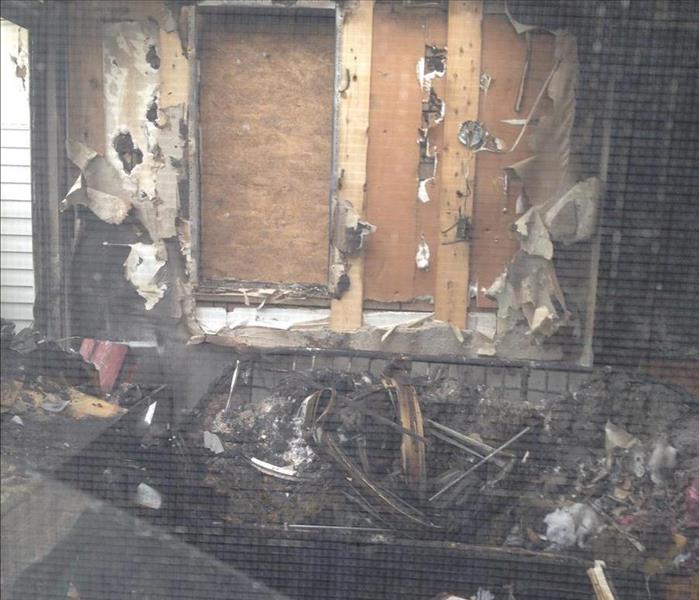Red Cross Fire Prevention & Safety Tips
9/8/2015 (Permalink)
 Fire damage at a home in Scranton that SERVPRO was called to mitigate and restore.
Fire damage at a home in Scranton that SERVPRO was called to mitigate and restore.
Preparing and Preventing a Home Fire - Steps You Can Take Now- Keep items that can catch on fire at least three feet away from anything that gets hot, such as space heaters.
- Never smoke in bed.
- Talk to your children regularly about the dangers of fire, matches and lighters and keep them out of reach.
- Turn portable heaters off when you leave the room or go to sleep.
- Install smoke alarms on every level of your home, inside bedrooms and outside sleeping areas.
- Teach your children what smoke alarms sound like and what to do when they hear one.
- Test smoke alarms once a month, if they’re not working, change the batteries.
- Smoke alarms should be replaced every 10 years. Never disable smoke or carbon monoxide alarms.
- Carbon monoxide alarms are not substitutes for smoke alarms. Know the difference between the sound of smoke alarms and carbon monoxide alarms.
- Ensure that all household members know two ways to escape from every room of your home.
- Make sure everyone knows where to meet outside in case of fire.
- Practice escaping from your home at least twice a year and at different times of the day. Practice waking up to smoke alarms, low crawling and meeting outside. Make sure everyone knows how to call 9-1-1.
- Teach household members to STOP, DROP and ROLL if their clothes should catch on fire.
- Stay in the kitchen when frying, grilling or broiling food. If you leave the kitchen, even for a short period of time, turn off the stove.
- Stay in the home while simmering, baking, roasting or boiling food. Check it regularly and use a timer to remind you that food is cooking.
- Keep anything that can catch fire—like pot holders, towels, plastic and clothing— away from the stove.
- Keep pets off cooking surfaces and countertops to prevent them from knocking things onto the burner.
Caution: Carbon Monoxide Kills - Install carbon monoxide alarms in central locations on every level of your home and outside sleeping areas.
- If the carbon monoxide alarm sounds, move quickly to a fresh air location outdoors or by an open window or door.
- Never use a generator, grill, camp stove or other gasoline, propane, natural gas or charcoal-burning devices inside a home, garage, basement, crawlspace or any partially enclosed area.